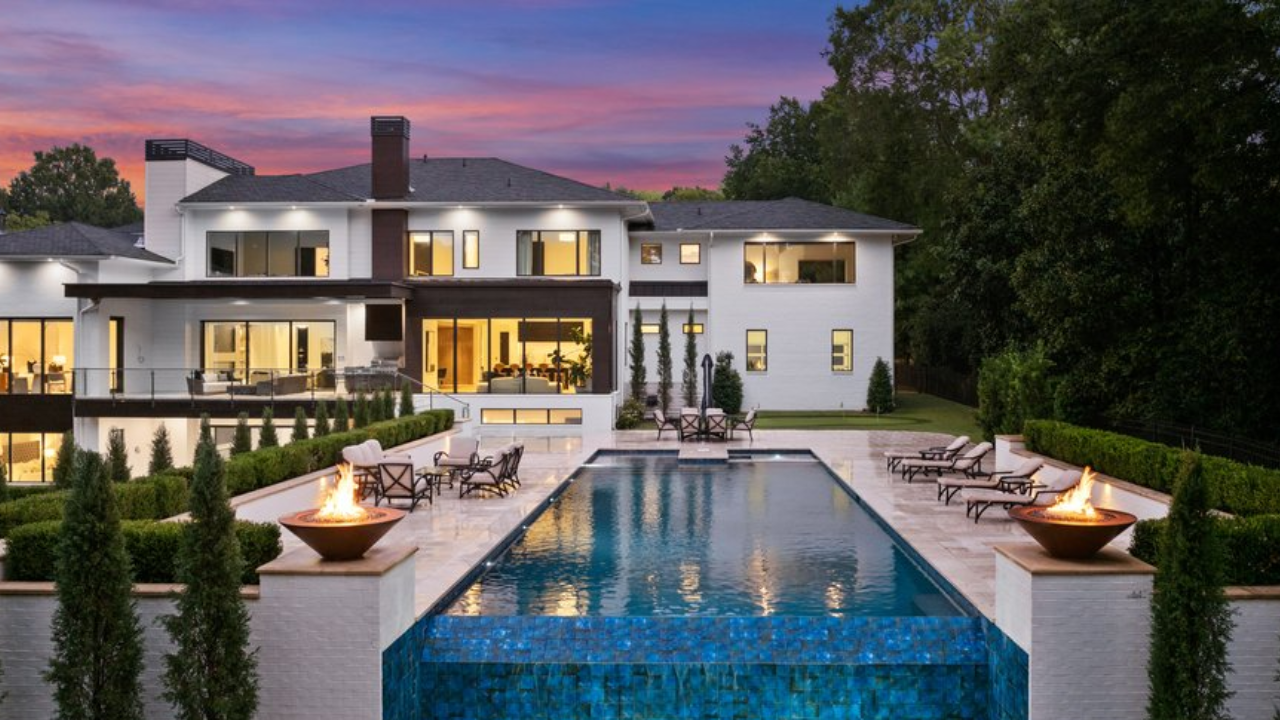How is the luxury housing market performing in 2025? Well, the luxury housing market in 2025 is witnessing a dynamic shift. These are influenced by global economic trends, evolving buyer preferences, and regional market performances(According to 2025 Luxury Homes Global Market, and Trend Outlook Report). With some cities experiencing record-breaking sales while others face a slowdown, investors and homebuyers are keen to understand how the high-end real estate sector is performing this year.
From booming investments in Dubai to shifting trends in Europe and the U.S., the luxury housing market remains resilient but nuanced. This guide provides an in-depth analysis of the market’s performance, key trends, emerging buyer preferences, and expert predictions for 2025.
Global Performance and Market Trends
Overall Market Performance
The luxury real estate market in 2025 presents a mixed landscape. While some regions, like the Middle East, have witnessed significant growth, others, such as certain parts of Europe, are still recovering from economic challenges.
- Dubai’s High-Value Real Estate Surge: The city continues to be a magnet for luxury real estate investors, with transactions soaring by 76% year-on-year, reaching a staggering $4.4 billion in early 2025. Dubai’s luxury housing market boom is largely fueled by an influx of ultra-high-net-worth individuals (UHNWIs), favorable tax laws, and a strong demand for opulent waterfront properties and branded residences.
- French Luxury Market Recovery: France has seen an uptick in demand for high-end properties, largely driven by lower interest rates and a renewed appetite for spacious suburban homes. Prime locations such as Paris, Nice, and the French Riviera are experiencing a resurgence in demand, particularly among international investors looking for secure, high-value assets.
- New York’s Luxury Market Stabilization: The New York luxury housing market, which saw a slowdown in 2023 and 2024 due to economic uncertainties, is experiencing a more balanced market in 2025. High-end condos and penthouses in Manhattan are seeing a revival, particularly in areas such as Tribeca and the Upper East Side.
Despite global economic uncertainties, the luxury housing market is demonstrating resilience in select prime locations.
Key Factors Influencing the Market
Several external factors are shaping the luxury real estate sector:
Economic Indicators and Stock Market Influence
- The recent correction in the S&P 500 has made wealthy buyers more cautious, leading to a temporary slowdown in transactions in some markets.
- Many high-net-worth individuals (HNWIs) are holding onto cash reserves, waiting for more stability before making large investments.
- The impact of inflation and fluctuating interest rates is also playing a role in luxury property transactions. Some buyers are turning to cash purchases to avoid financing costs.
Taxation and Regulatory Changes
- London’s rising property taxes are leading more ultra-rich buyers to opt for luxury rentals rather than purchasing homes.
- Higher inheritance taxes in European countries are influencing real estate decisions, particularly in France, Italy, and Germany.
- The U.S. real estate market’s new capital gains tax regulations have impacted investment properties, making high-end rental markets more attractive for short-term investors.
Changing Buyer Preferences and Demographics
Remote Work and Lifestyle Shifts
- 30% of the French workforce is now working remotely, increasing demand for spacious homes outside urban centers. Villas in Provence, châteaux in Bordeaux, and countryside estates in Tuscany are becoming popular among executives seeking both luxury and tranquility.
- Coastal and countryside properties, particularly in the French Riviera, Amalfi Coast, and Spain’s Balearic Islands, are seeing a surge in interest as buyers move away from high-density urban living.
- In the U.S., high-net-worth individuals are purchasing ranch-style estates in Texas and Colorado, where privacy and land ownership offer a more secure and comfortable lifestyle.
International Investors’ Role
- U.S. investors are actively purchasing properties in Europe, particularly in Italy, Spain, and Greece. The strength of the U.S. dollar against the euro has made European real estate more affordable for American buyers.
- Middle Eastern investors are heavily investing in London and New York properties, despite regulatory challenges. The appeal of these financial capitals remains strong for those looking for long-term wealth preservation.
- Asian investors, particularly from China, continue to invest in luxury real estate in Australia, Canada, and major U.S. cities such as Los Angeles and San Francisco.
Emerging Luxury Housing Trends
Health and Wellness Amenities
- High-end properties now feature private gyms, meditation rooms, spa facilities, and biohacking labs.
- Buyers prioritize homes that support wellness-oriented lifestyles, including saltwater pools, air purification systems, and circadian lighting technology.
Sustainability in the Luxury Housing Market
- Green architecture and eco-friendly features are more desirable than ever.
- Properties with LEED certifications, solar energy solutions, and geothermal heating are commanding higher prices.
- The demand for off-grid luxury properties is increasing, with buyers seeking complete self-sufficiency in secluded locations.
Regional Market Highlights
London’s Growing Rental Market
- More high-net-worth individuals are choosing to rent instead of buy due to increased taxes on property ownership.
- The luxury rental market is expanding rapidly, with long-term leases in prime locations such as Mayfair and Kensington.
Australia’s Luxury Housing Market Trends
- Sydney remains one of the most expensive real estate markets, with the price per square meter increasing significantly.
- Gold Coast emerges as a luxury hotspot, attracting buyers seeking high-end beachfront properties at lower prices than Sydney or Melbourne.
U.S. Luxury Real Estate Highlights
- Miami remains a top luxury market, with buyers from Latin America and Europe investing in high-end condos.
- Los Angeles and Beverly Hills continue to attract celebrity buyers, with record-breaking home sales exceeding $50 million in 2025.
Future Outlook of the Luxury Housing Market in 2025 and Beyond
Industry Expert Predictions
- Market analysts predict that luxury real estate will maintain stability despite economic and political uncertainties.
- The availability of high-end inventory ensures steady market conditions, making it a buyer’s market in certain locations.
Investment Strategies for 2025
- Top locations for investment include Dubai, Monaco, Paris, Miami, and Los Angeles.
- Diversification is key: Buyers are opting for a mix of urban penthouses, countryside estates, and resort-style properties.
- Long-term rental properties in prime markets are proving to be a lucrative investment as demand for high-end rental units rises.
The luxury housing market in 2025 remains a complex yet promising sector. While economic fluctuations and tax regulations are influencing buyer decisions, certain regions are thriving with increased demand. From Dubai’s billion-dollar boom to Europe’s emerging rental market, luxury real estate continues to evolve in response to global trends.
For investors, now is the time to evaluate market conditions carefully and consider strategic acquisitions in high-growth regions. Whether purchasing for lifestyle benefits or investment potential, the luxury housing market in 2025 presents unique opportunities for those who navigate it wisely.
Are million-dollar homes increasing in value? Discover in Selling Million Dollar Homes.



